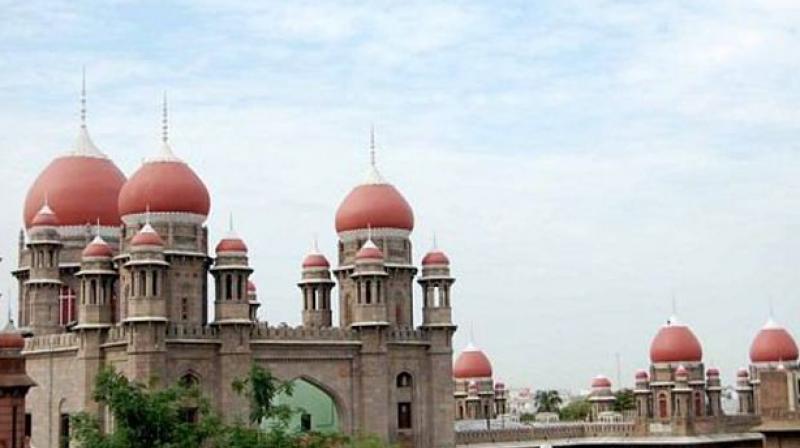Children's interest is key in custody petitions: Hyderabad High Court

Hyderabad: In a significant ruling, the Hyderabad High Court on Friday turned down an order passed by an American court and allowed two children born in the US to live with their mother in India.
A division Bench comprising Justice P.V. Sanjay Kumar and Justice M. Seetharama Murti, while dismissing a habeas corpus petition by the father, an NRI, observed that the welfare and interest of the children should be the paramount consideration while deciding custody battles between parents over their children.
The NRI had moved the petition stating that his wife had left the US with their daughter (7), and son (2), in March 2013, due to family disputes. Despite a final decree of divorce and sole legal and residential custody of the minor children granted to him in January 2014 by a family court in the USA, his ex-wife had not given him their custody.
The ex-wife contended that she had moved a petition in a court in Hyderabad for divorce and custody and had secured an interim injunction restraining her husband and his family from taking the children from her custody.
The Bench pointed out that though the petitioner had final decree in January 2014, he had failed in availing the opportunity available to him under the Civil Procedure Code for execution of the decree through a competent court in Hyderabad.
The Bench relied on the parents’ patriae jurisdiction (parent of the country) under Clause 17 of the Letters Patent, which endows jurisdiction over the person and estates of all infants within its territory, to dismiss the case.
The Bench said, “It is fairly well settled that, the fact that a foreign court of competent jurisdiction has passed an order in relation to the custody of the minor child would not, by itself, be a decisive factor for this court to hold in favour of the party to the dispute who secured such an order.” It said that the court would still have to undertake an inquiry as to what would be in the best interest and welfare of the children.
The Bench, after having an interaction with the couple’s daughter, observed that “she has hazy memories of her life in the USA but stated with confidence that she was very happy in India.”
The Bench also noted that no rule could be laid down as to what length of time would be sufficient for a displaced child to develop roots in and affinity towards a country to which he or she had been removed.
Maintaining that even a year during the formative years would be sufficient in this regard, the Bench noted that in the present case, the son of the petitioner had developed a bond with his mother and his maternal grandparents apart from having no roots whatsoever in the country of his birth.
The Bench opined that it was not in the interest or the welfare of these children to be displaced from their settled life in India and be transported back to what would now be an alien life in the USA.
The HC left it open to the petitioner to seek suitable orders from a competent court for visitation rights.

